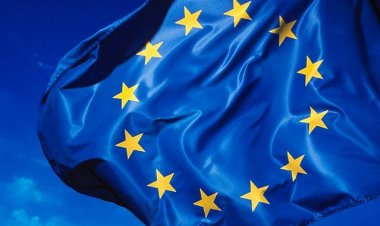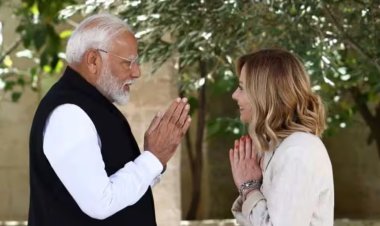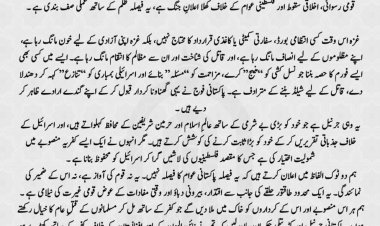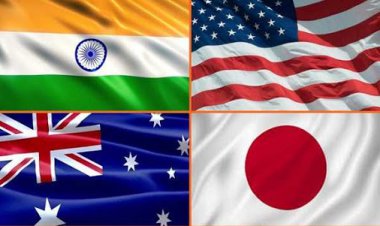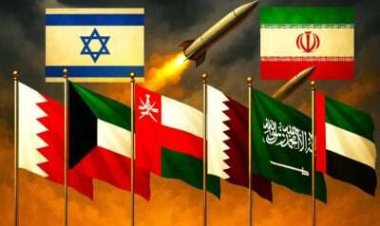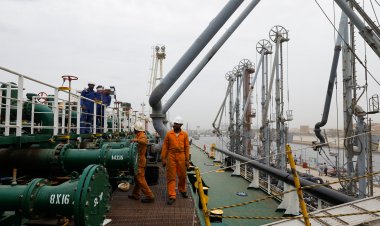Macron vs. Le Pen: Implications for India’s Foreign Policy Interests
As France enters the run-off stage of its presidential election, the stage is set for a clash between two rivals – Emmanuel Macron and Marine Le Pen. While Macron is tipped to be the winner, he himself has said “nothing is decided.” Macron has adopted a self-described “radical-centrist” approach and Le Pen has continued campaigning on a far-right platform while trying to soften her image. This article discusses the two candidates’ positions on globalization, Islamic extremism, and the post-Brexit European Union. Through this discussion the article examines how Le Pen and Macron align with India’s foreign policy interests, and how the election result will impact India-France bilateral relations
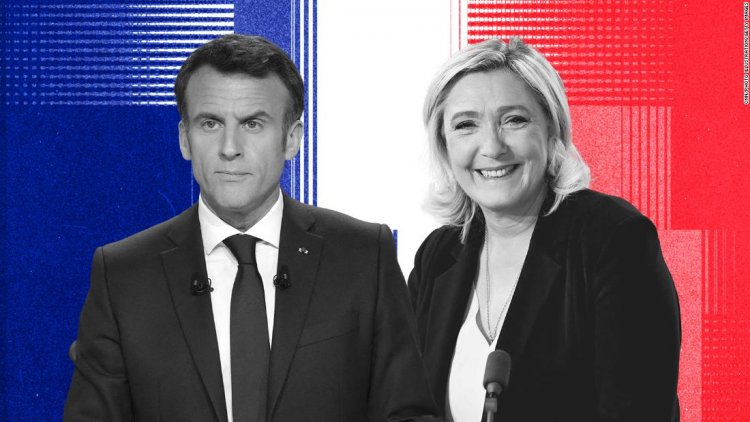
Analysis
By Mihir Vikrant Kaulgud, Rituja Ghosh
As France enters the run-off stage of its presidential election, the stage is set for a clash between two rivals – Emmanuel Macron and Marine Le Pen. While Macron is tipped to be the winner, he himself has said “nothing is decided.” Macron has adopted a self-described “radical-centrist” approach and Le Pen has continued campaigning on a far-right platform while trying to soften her image. This article discusses the two candidates’ positions on globalization, Islamic extremism, and the post-Brexit European Union. Through this discussion the article examines how Le Pen and Macron align with India’s foreign policy interests, and how the election result will impact India-France bilateral relations.
In terms of globalization, Macron continues to support globalization and free trade. Even in his previous campaign, he adopted a pro-globalization and pro-EU stance - “calling for stronger international institutions, a recommitment to the rules-based system of international trade, and a general embrace of globalization.” His policies and regulatory reforms have also backed this stance. On the other hand, Le Pen has been vocally against globalization and supranational institutions such as the EU and the IMF. She has called the EU totalitarian, and considers such institutions oppressive in terms of imposing policies and outlooks on independent countries. This was also a part of her previous election platform. She advocates for preserving the identity and sovereignty of individual nations - which has led some to call her a “nostalgic nationalist”. Her calls for protectionism have recently been mixed with a concern for providing social welfare. She has consistently articulated hard stances against immigration.
France has the largest Muslim community in Western Europe. It has had to forge a tricky balance between supporting religious freedoms while mitigating the threat of Islamic extremism. Moreover, there have been debates about the clash of values between Islam and French secularism. While stressing that the fight is not against Islam as a whole, Macron put forth legislation on security and Islamist fundamentalism. He has sought to reform Islamic institutions in France so that it is more aligned with the French brand of secularism. For instance, he has upheld a ban on headscarves in schools citing secularism. Le Pen has called terrorism “unquestionably the global danger.” It is unclear what concrete policies she advocates for in this regard, She supports cultural homogeneity, which is a trait shared by several far-right leaders in Europe. This includes a severe stance against immigration and markers of religious differences such as hijabs or headscarves (she proposes to make wearing a hijab in public punishable by a fine.)
With regards to France’s position in the EU after Brexit, Macron has articulated a “muscular” vision for the EU. He has advocated for an EU-wide collective stance against illegal immigration and security threats. Putting the EU before NATO and the US security policy - greater European strategic autonomy. He has tried using France’s presidency of the EU Council strategically during his re-election campaign. Marine Le Pen is not in support of the EU. Although she has backed down from her call for France to leave the EU, she still advocates that France should get to pick and choose what elements of the EU it engages with. Therefore, out of the two candidates, Macron clearly wishes for France to take on a dominant role in the EU following Brexit whereas Le Pen would seek more autonomy from the EU, which would perhaps exacerbate its fissures.
Europe’s current crisis is in Russia’s invasion of Ukraine. On this issue, Macron has condemned Russia’s actions but has looked for a diplomatic pathway to peace. He has conferred with both Zelenskyy and Putin multiple times while avoiding bandwagoning with Biden’s choice to term Russia’s actions in Ukraine as “genocide.” Meanwhile, Le Pen has been against sending Ukraine weapons to fight against Russia. She has focused on the internal repercussions of the war in France - the rising fuel prices and living costs. In the realm of external relations, she has repeatedly leaned towards Russia and Putin especially. She views Putin’s Russia as aligned with her policy goals; therefore it is a major partner. A large source of funding for her party is also of Russian origin - a contentious issue Le Pen has downplayed during the election.
Macron and Le Pen have both articulated a similar vision of strategic autonomy from the US, especially in terms of security policy. Le Pen would move France out of NATO’s military command structure while remaining in the NATO/US bloc. This move would give France more flexibility in dealing with Russia and avoid the neo-Cold War dynamics at play. Le Pen has previously indicated that she supports a multipolar world.
Regarding India-France bilateral relations, the two countries share strategic and military ties, including India’s defense acquisitions from France - most prominently Rafale fighter jets. In May 2021, India joined the French La Perouse exercise for the first time in the Bay of Bengal. There are no indications that these military ties will reduce with either candidate. However, Le Pen is likely to impose high tariffs in general, as a protectionist gesture. This would generally impact Indian exports to France. However, it is too soon to detail the specifics of such a scenario.
More generally, Macron’s policies may spell business-as-usual in terms of India-France bilateral relations. Macron has already cultivated a relationship with India and the Modi government. Macron and Modi have both talked about strengthening Indo-Pacific cooperation. More specifically, Macron has also sought to counter China in the international arena. For instance, Macron has raised concerns about China’s repression of Uighur Muslims and in Hong Kong. Under Macron’s presidency, France has conducted joint military exercises with Japan, the US, and Australia in the Pacific, which is arguably a thinly-veiled show of force against China. These are India’s QUAD partners, and Macron’s willingness to engage fruitfully with them spells good omens for India as well. Macron has also added that “France shares ambitions in the environment, health, and innovation with India.”
On the other hand, Le Pen’s inward-looking, and protectionist stance may not spell good news for India in terms of economic or security multilateralism. There is an alignment between Marine Le Pen’s foreign policy outlook and that of India’s current government. This alignment is based on two factors. Firstly, Le Pen’s hardline stance against global Islamic terrorism deeply resonates with India’s interests and outlook. Secondly, Le Pen has also vowed to take a tough stand against China in the Indo-Pacific. Moreover, Le Pen has also said she will continue engaging with Moscow after the Russia-Ukraine war to “push Russia into China’s arms.” This is a sentiment that India will especially appreciate. India’s close strategic and historical relationship with Russia faces a challenge with growing evidence of a Russia-China axis, since China and India do not have the warmest of relations. Le Pen leans towards a multipolar world order, which will also resonate with India’s outlook. What concrete ramifications this alignment will have remains to be seen. Le Pen is less concerned with “political correctness” and toeing the Western liberal line. A Le Pen victory could precipitate a change in the public commentary in France towards India, away from the bias Western media has shown towards India in recent years. Moreover, Le Pen’s self-described “patriotic” stance, which emphasizes self-reliance and the right to creatively pursue self-interest, is closely in line with the current Modi government’s vision for India and its position in the world. Le Pen’s inward-looking approach may not offer much for India in terms of bilateral advancements or even in the multilateral arrangements France and India are part of.
Disclaimer: This article is author’s individual scholastic contribution and does not necessarily reflect the organization’s viewpoint.




